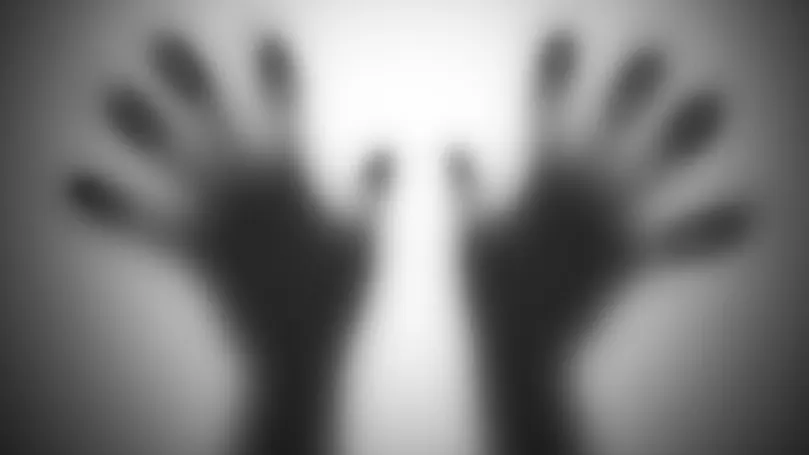What is a nightmare?
First off, we'd like to get precise when it comes to what constitutes a nightmare in the first place. After all, in our everyday lives, we throw this word around in relation to most negative emotions and experiences. Not to mention that there are also two distinct phrases that sound fairly similar even though they're actually different phenomena altogether.
The difference between bad dreams and nightmares

Although nightmares are dreams that are by definition bad, these two terms are still used in different situations. And the key difference is how you react to the dream itself. If you had a bad dream, you won't actually wake up nor have any major physical symptoms.
On the other hand, when you have a nightmare, you'll jolt awake. It's usually in the middle of the night, as that's when nightmares take place. You will likely have a faster heartbeat. This distinction might seem trivial but it's actually important to keep in mind. After all, disturbing dreams won't have much of an effect on your overall physical or mental health. Frequent nightmares, on the other hand, can lead to sleep disorders.
What are night terrors?
The second term that sometimes gets mistaken for nightmares is night terrors. And just like with bad dreams, some similarities do exist between the two but they're fundamentally different.
For one, you won't wake up from night terrors. In fact, unlike bad dreams, you won't even remember what exactly frightened you in the first place. Night terrors in children will sometimes have them remember a specific scary image. But unlike bad dreams, there won't be an actual narrative but rather just a feeling.
Another important distinction, especially when it comes to night terrors in toddlers, is that they're likely to toss around or even have bouts of sleep shouting or sleep crying. It's because, unlike nightmares, night terrors take place before REM sleep, thus your body can still react to the stimuli.
What causes nightmares?
Just like when talking about dreams, you can't prevent nightmares entirely. That's because they're rather unpredictable and occasional nightmares are bound to happen. However, there does seem to be a correlation between a few major factors and the occurrence of nightmares.
Stress and anxiety
As we'll discuss a bit later on, we have reason to believe that nightmares are a reflection of our mental health. Therefore, living very stressful lives or suffering from anxiety can heighten the likelihood of having a nightmare after falling asleep.
However, it's important to note that this isn't a one-to-one scale. For example, just because you don't actively feel stressed one day, doesn't mean it will stop nightmares from occurring. And on the other hand, just because you're stressed, doesn't mean you'll have nightmares. If that were the case, recurrent nightmares would be inevitable for a lot of people.
Sleep disorders
Poor sleep quality can trigger nightmares as you're more likely to be stressed and have a disrupted sleep schedule. The most striking sleep disorder, in this case, is sleep deprivation as your mind is likely going to be in disarray and your REM sleep prolonged. Insomnia is also in this category for the same reason.
However, another important sleep disorder in this category is Obstructive Sleep Apnea. As OSA often wakes people up in the middle of the night, the disrupted sleep schedule might result in more frequent nightmares. In either case, seeing a sleep specialist is highly advised.
Mental health disorders
When it comes to frequent nightmares, especially adult nightmares, the most significant contributor is post-traumatic stress disorder. Since people afflicted with PTSD commonly relive their trauma, it leads to both worse sleep and negative mental health, along with the occurrence of nightmares.
And since PTSD can affect sleep in such a major way, even leading to chronic nightmares, seeing a professional is usually necessary.
Sleep-disrupting stimuli

Under this category, we're counting anything you can consume that can worsen your sleep quality. The most common factors in this regard are alcohol and drugs, as they tend to have the largest impact on your sleep architecture.
However, this also refers to medications, as both side effects and withdrawal symptoms can include worse sleep quality and thus a higher chance of nightmares. So, take note of the timing of your nightmare and think about whether you stopped using or switched your medication in that same timeframe.
Lastly, we have things like your diet and atmosphere. So, if you eat a lot of spicy food or have a huge fried meal, your sleep might suffer. And if your room is too hot or too cold, the same principle applies. So, keep your room at a comfortable (or just slightly colder) level and learn about how certain foods can affect your sleep.
And as a fun fact, this is also where the myth that eating cheese can cause nightmares comes from. In reality, the main theory postulates that a) lactose-intolerant people started the myth since they had an uneasy sleep and then b) the myth became a self-fulfilling prophecy as people now believed that cheese has this effect.
Why do we have nightmares?

Considering that humans have had nightmares for as long as we've had dreams and that even certain animals can have nightmares, one must assume that nightmares activate some primal part of our brain and have an evolutionary purpose.
The prevailing theory describes two functions of nightmares – breaking down complex emotions and running “survival simulations”. The former would explain nightmares regarding anxiety, loneliness, self-doubt, etc. By going over these complex emotions, the mind can supposedly learn to understand and compartmentalise them more efficiently.
The survival aspect, on the other hand, can explain some of the more terrifying vivid dreams and makes sense in terms of evolution. It postulates that if, for example, you're attacked by an animal, you're likely to have nightmares about the incident and your mind “readies itself” for a rematch.
And considering that our ancestors ran into predators fairly often and always had to be on their toes, we think this makes a lot of sense. However, this function is a lot less useful in the modern world.
Why do I have nightmares every night?

In this section, we'd like to point out one very important factor – nightmare frequency. This is to say that if you occasionally have nightmares, that's completely normal. However, if you have them multiple times a week, you might have nightmare disorder.
We point this out not because of semantics but because nightmare disorder can severely hamper your daytime functioning and be a sign of an underlying disorder. In this case, seeing a professional and potentially taking part in an overnight sleep study might be necessary. But this is for severe cases where frequent nightmares actively lead to a deterioration of your quality of life. Now we'll move on to the less severe instances.
How to stop nightmares?
As mentioned, in this section we're strictly talking about “regular” nightmares and not nightmare disorder. And while you can't avoid nightmares completely, making them less likely to happen mostly boils down to good sleep hygiene and looking after your mental health.
Relax
If we were to take a guess, we'd say that nightmares in adults are mostly caused by their stressful lives. So, taking steps to lessen that burden should yield results in the long run. Doing relaxing activities before bed (like yoga or progressive muscle relaxation), calming your nerves with some tea or with a weighted blanket, and deep breathing are all good tactics.
And even things such as having good bedding, like a good mattress and comfy pillow, can take some of the edge off when going to bed. However, if the stress is too heavy of a burden to be taken off this easily, having someone to talk to or lean on is likely to yield results. Likewise, if your child is having nightmares, be their rock and make them feel safe and protected.
Take control of your dreams

Another method often used to lessen the impact of nightmares relates to taking control of the dream itself, and this can be done in a few different ways. On the most fundamental level, talking about your dreams and working out what real-life feelings they relate to can make them seem a lot less threatening.
Some people even recommend keeping a sleep diary and jotting down your nightmares in order to pick up on common themes and patterns. And as the most direct/extreme approach to this situation is to try to induce lucid dreaming and quite literally take control of the situation. If you want to learn more about lucid dreaming, here's our complete guide.
What are the most common nightmares and what do they mean?

Although the meaning of nightmares can differ from person to person, there seem to be a few scenarios that pop up quite frequently. So, based on our research and opinion, here are the top 10 nightmares you're likely to have and what they could potentially mean.
And make sure to tell us in the comments how many of these you've had! Or if there's a particularly odd nightmare that has been haunting you.
- Your teeth are falling out – you could be unhappy with how you look or feel powerless. Generally connected to low self-confidence.
- Being chased – generally relates to avoiding something or someone you find threatening. The chaser might also represent some aspect of yourself like your own feelings of anger, jealousy or fear that you find threatening.
- Being naked in public – Being naked symbolises that you’re not able to find yourself and uncertainty or that you’re wrongly accused of something.
- Being unprepared for an exam – these nightmares usually reflect our lack of confidence in our ability to advance to the next stage in our life.
- Being unable to find a toilet – this could mean you have difficulties expressing your needs in a certain situation or that you always put others' needs ahead of your own.
- Turbulent or unsuccessful flight – flying usually relates to a sense of empowerment and freedom, so the inability of doing so can showcase a lack of confidence or a roadblock on your path to success.
- Falling – this usually represents a feeling of losing control and has its roots in the fear of change.
- Incidents while driving – this could represent a feeling that your life has gone off-track and a sense of uncertainty.
- Being late for something – usually relates to anxiety regarding an important decision or change in your life.
- Death – witnessing the death of a loved one or a stranger could represent a deep-rooted fear of losing someone or even anxiety about your own health.
Conclusion
We can't stop nightmares completely and the jury is still out on why they happen in the first place. However, understanding potential triggers (like bad sleep hygiene, certain foods, sleep disorders etc.) can help us lessen the burden nightmares can have.
So, as long as you keep your head up, take care of your body, and seek out professional help when needed, you won't have to worry about nightmares affecting your real life. But if you have some tips that have helped you avoid having nightmares, leave them in the comments.
Spread the word
Resources & references
"*" indicates required fields

















I appreciate you sharing this blog post. Thanks Again. Cool.